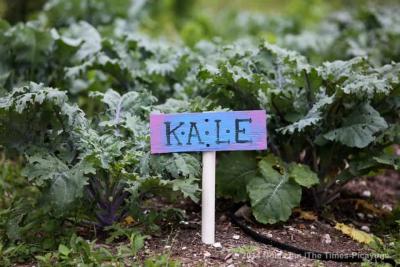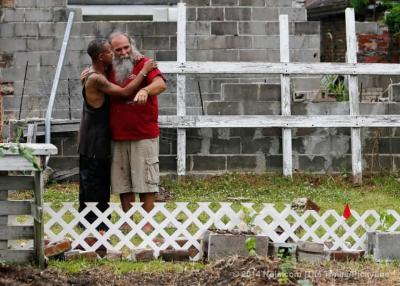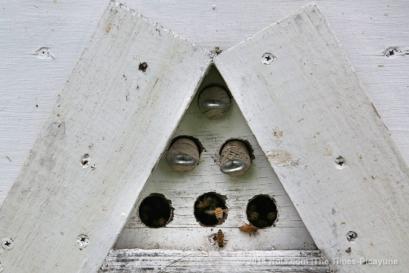

by Brianna Acuesta, True Activist
This man has started dozens of gardens in New Orleans' poorest area to feed residents for free.
After Hurricane Katrina hit New Orleans in 2005, many of the areas impacted by one of the deadliest hurricanes on record in the U.S. were never again the same. Funding for infrastructure and community development has been scarce and many of southeast Louisiana’s poorer districts, including the Ninth Ward, have suffered deeply ever since then.
That’s why David Young decided to create Capstone Community Gardens & Orchard, a volunteer-run non-profit that has converted over 30 blighted and abandoned lots into gardens and orchards for the community.
Young started the organization shortly after Katrina hit when he saw that there were many without food and no resources to access fresh food in the area. With a crumbling infrastructure that wasn’t likely to be fixed anytime soon, companies didn’t want to rebuild many stores, making it even more difficult for the already-poor district to find the food they need to thrive.

Credit: The Times-Picayune
“There are no good grocery stores around this area,” Amy Karus, a 39-year-old Capstone volunteer, told Good News Network. “The Lower Ninth Ward is the area that was devastated the most – the worst of the worst.”
What started out as a random lot purchase that he bought through a bank foreclosure evolved into something else entirely. Originally, Young planned on either employing or housing homeless people somehow with his new space, but he started out by planting his own personal garden.
“And I found out people need food,” Young said. “So I kept expanding.”
With more than 30 lots in his care now, the food is accessible to anyone in the community for free or at a reduced cost. Young grows everything from Brussels sprouts, to kale, to tomatoes, to Swiss chard. The non-profit is run through donations, the help of volunteers, and the slowly growing ‘business’ he’s started with honeybees.

Credit: The Times-Picayune
Though many people know that honeybees are very important for the environment, it can be difficult to welcome them into your home and allow them to live in hives right next to your house. Since many of the buildings in the Ninth Ward are dilapidated, many honeybees have grown their hives in the area and people are now turning to Young to extract them.
Using a low-suction vacuum, Young extracts all the bees and brings them and their hive to one of his lots so that they can also enjoy the gardens he’s worked so hard to maintain by living freely among the wildflowers and clover. They give back by pollinating his flowers and vegetables and also by providing their honey to sell. Capstone has their very own honey that they sell to fund the organization, and for donations people can even “adopt a hive.” Young also has goats on some of the dilapidated lots that need extra weeding and chickens that provide eggs for poor families.

Credit: The Times-Picayune
Some point out that there are food pantries that provide limited food for the poor for free in the area, but Young points out that what they distribute is not enough to live off of. Karus defended this argument by saying,
“If you’re low-income, if you don’t have any money, if you have no way to support yourself, that is not enough to live off of. They give a small amount of food for the entire month. So David has made sure that these gardens are all over the community and people can go harvest them at any time, if they feel the need for the food – which I think is a wonderful thing.”
For those that find it hard to get out and harvest food, such as the elderly, disabled, or just plain busy, Capstone even delivers food bags with eggs and vegetables so that no one goes hungry. Young is absolutely committed to this cause and works year round to make sure that families all over the district are not suffering because his gardens have plenty to offer, no matter how low their income is. Young said,
“If we all did our part, if we all did what we could for our community, to help one another, to help the environment as much as we could, could you imagine how peaceful – how wonderful life would be?”

Credit: Capstone Community Gardens and Orchard
If you would like to donate to Capstone, you can do so here. You can also follow their latest efforts here on Facebook.
Creative Commons / True Activist / Report a typo

